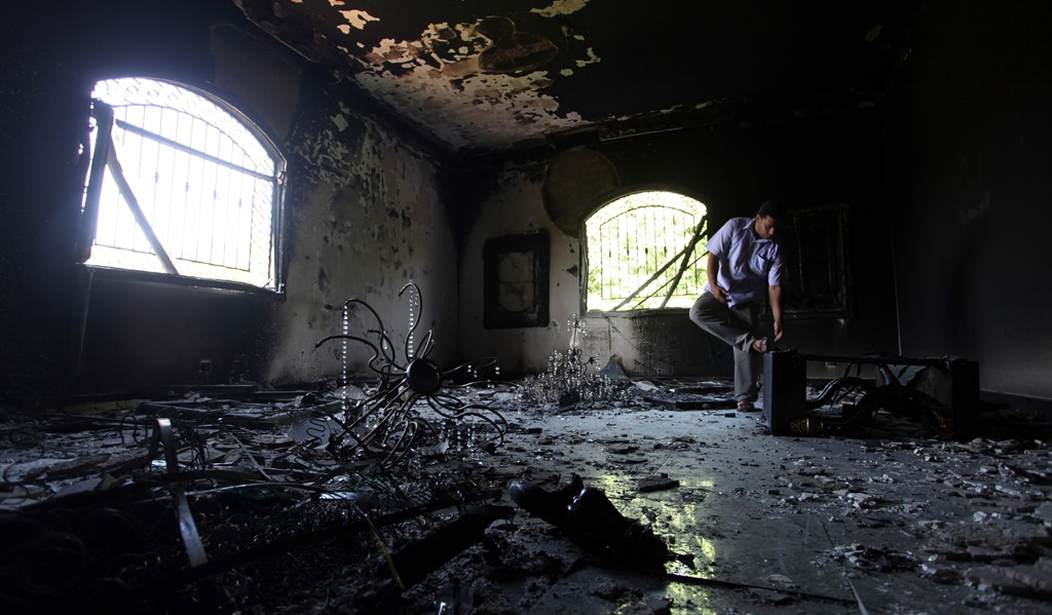The trial for Ahmed Abu Khattala, the suspected mastermind behind the 2012 terror attack on the U.S. embassy in Benghazi, Libya, got underway Monday in Washington, D.C. Khattala's defense attorney Jeffrey Robinson insisted that his client is wrongly accused. The U.S., he said, just wants someone to blame for the deadly rampage.
He went a step further, calling Khattala a "Libyan patriot" who was just an innocent bystander on September 11, 2012.
In his opening statement, defense attorney Jeffrey Robinson called Abu Khattala a "Libyan patriot" who fought on America's side in the war against Libyan leader Moammar Gadhafi. He said Abu Khattala didn't mastermind the attack. The lawyer said the defendant simply went to the attack site because he heard there was a protest and wanted to see what was happening.
"He didn't shoot anyone. He didn't set any fires. He did not participate in the attacks," Robinson said. (U.S. News & World Report)
The government's first witness to testify in Khattala's trial was Agent Scott Wickland, a diplomatic security agent whose duty it was to protect U.S. Ambassador Christopher Stevens. Wickland took the stand to give an account of the raid on the U.S. consulate when he tried to save both Stevens and State Department information management officer Sean Patrick Smith. His testimony was both captivating and heartbreaking.
After the terrorist stormed the compound and unleashed gunfire and explosions, Wickland recalled how he, Smith and Stevens could barely breathe from the fumes. That's when he took decisive action to move the men to a secure location. Unfortunately, he lost sight of them.
Recommended
"I was breathing through the last centimeter of air on the ground," Wickland said. "I'm yelling, 'Come on. We can make it. We're going to the bathroom.' Within 8 meters, they disappeared."
Wickland kept yelling for them. He was feeling around on the floor through the toxic smoke, which made the lighted room darker than night.
"To this day, I don't even know where they went. I was right next to them, and then that's it," Wickland said. "I had my hand on Ambassador Stevens. I could hear Sean shuffling."
If you are interested in Wickland's heroic efforts, as well as those of all the security contractors on duty that day, their stories are compellingly told in the film 13 Hours: The Secret Soldiers of Benghazi.
Khattala faces an 18-count indictment and his civilian trial is expected to last weeks. Both Stevens and Smith died in the Benghazi attack, as well as contract security officers Tyrone Woods and Glen Doherty.
























Join the conversation as a VIP Member